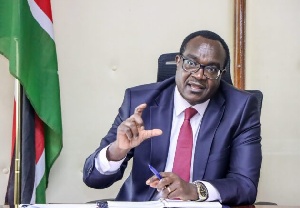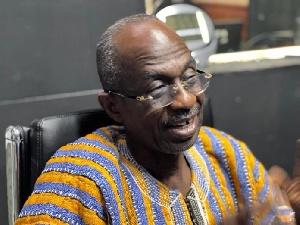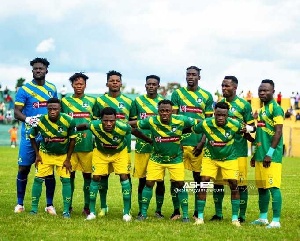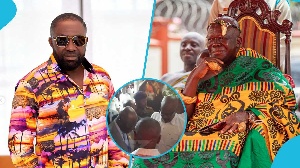Africa News of Thursday, 5 June 2025
Source: www.ghanawebbers.com
Kenya: Funding Crisis Threatens Public Schools As MPs Question Sustainability of Free Education Policy
Nairobi — Public schools are facing a funding crisis. Education Cabinet Secretary Migos Ogamba is under scrutiny in Parliament. Lawmakers are concerned about delays and shortfalls in capitation funds.
Ogamba appeared before the National Assembly Committee on Education. He admitted that the Ministry of Education does not have a verified figure for pending bills owed to schools. Lawmakers estimate these arrears could reach Sh64 billion, accumulated over several years.
"I didn't come with that figure," Ogamba said. "The amount raised by Hon. Robert Mbui, Sh64 billion, could be accurate." He questioned what to do about it since they still aren't receiving budgeted funds.
Documents showed that secondary school students receive an approved annual capitation of Sh22,244 each. However, for Term 1 of 2025, only Sh8,818.61 was disbursed per student. This represents just 50 percent of the intended allocation.
The Ministry provided Sh28.8 billion for 3.2 million students this year. This leaves a shortfall of Sh7.5 billion for the current financial year. Primary schools received only Sh1,420 per learner annually, which is below the recommended Sh2,238.
Junior secondary schools also faced funding gaps, receiving half of the allocated Sh15,043 per learner annually.
For co-curricular activities in primary schools, only Sh36 out of the allocated Sh76 reaches schools. The remaining Sh40 is kept by the Ministry for national-level activities. Lawmakers criticized this allocation as inadequate and questioned oversight in school programs.
Members of Parliament expressed concern over school financing issues. They warned that delayed disbursements threaten the sustainability of free education in Kenya.
Committee Chairperson Julius Melly asked if free education can continue amid rising student enrollment and stagnant funding.
"We committed to offering free education," Melly said. "But can we truly do so with limited resources?"
Deputy Minority Leader Robert Mbui emphasized that the government must be honest about funding issues. He suggested introducing cost-sharing with parents instead of maintaining the illusion of free education.
"It’s time we acknowledge that free education is unsustainable under current constraints," Mbui stated.
Narok Woman Representative Rebecca Tonkei raised concerns about school heads managing insufficient resources without government intervention.
"How free is education when principals must manage with inadequate resources?" she asked.
Kibra MP Peter Orero criticized the Ministry for penalizing school administrators who try to raise additional funds through levies.
"For ten years, schools have not received full capitation," Orero said. "Each learner is short by about Sh9,000 annually."
The Ministry attributed delays in disbursement to late releases from the National Treasury and data inaccuracies from schools submitted to NEMIS.
CS Ogamba urged lawmakers to support ring-fencing education funds to protect them from disruptions and delays.
"We must prioritize education funding under the Constitution," he noted. "This will help address persistent shortfalls affecting students."
Ogamba acknowledged operational difficulties due to delayed funding impacting academic and co-curricular programs but reaffirmed commitment to free education.
"As for whether we have free education in this country: yes," he said. "But we face significant challenges needing urgent intervention."











